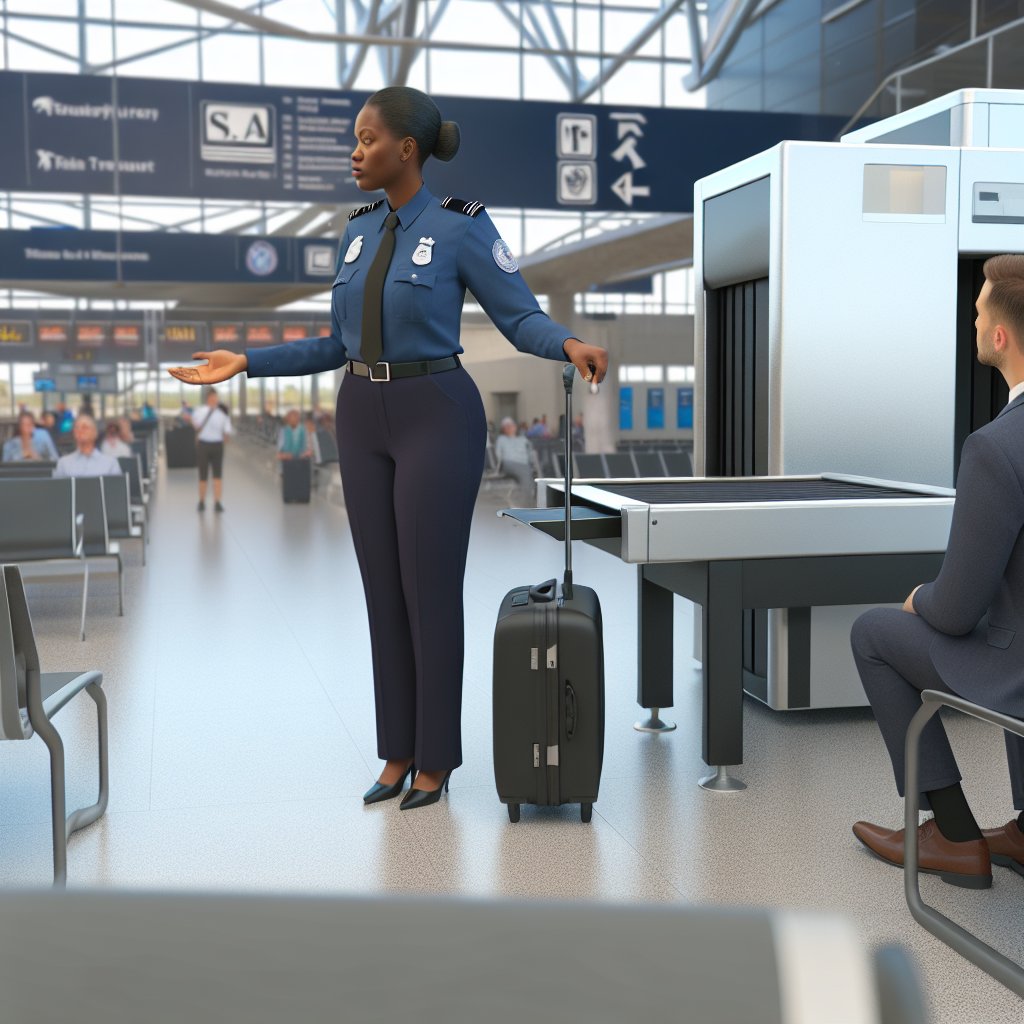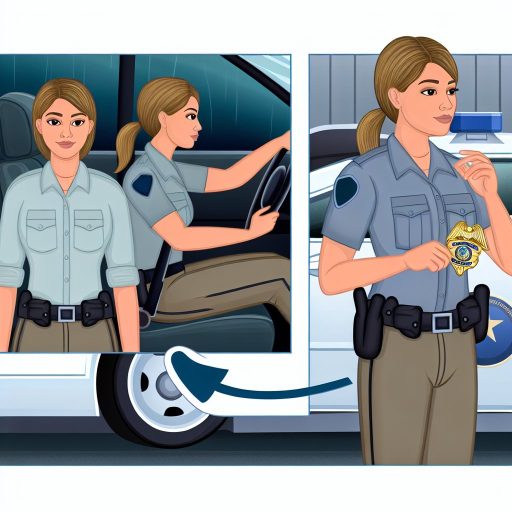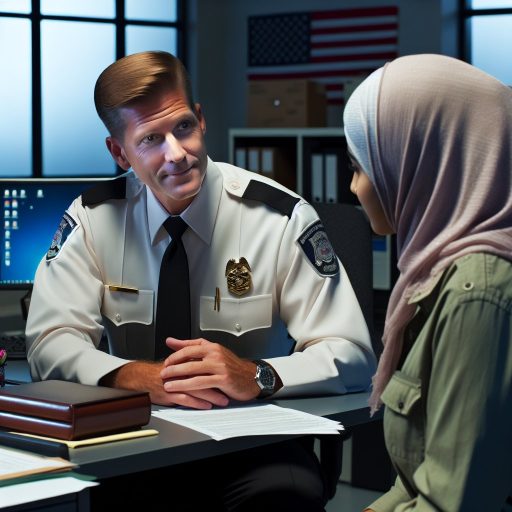Introduction:
The TSA Officer Training Program is a crucial component of preparing officers for their roles in ensuring security at airports.
This training equips them with the necessary skills and knowledge to identify potential threats and maintain safety for travelers.
In this blog post, we will delve into the specific aspects of the TSA officer training program to provide a comprehensive understanding of what individuals can expect when enrolling in the program.
Overview of the TSA Officer Training Program
The TSA Officer Training Program typically lasts for a period of 2 to 3 weeks, depending on the specific position and level of responsibility.
The training for TSA officers usually takes place at the Federal Law Enforcement Training Center (FLETC) located in Glynco, Georgia.
The training program consists of both classroom instruction and hands-on practical exercises to ensure that officers are well prepared for their duties.
Benefits of the TSA Officer Training Program
- Comprehensive training
- Hands-on experience
- Networking opportunities
- Career advancement
Officers receive thorough training on all aspects of airport security, including screening procedures, threat detection, and passenger interactions.
The training program includes simulated scenarios where officers practice responding to potential security threats in a controlled environment.
Officers have the chance to interact with fellow trainees and experienced instructors, building valuable connections within the industry.
Completing the TSA Officer Training Program opens up opportunities for advancement within the TSA, leading to higher-level positions and increased responsibilities.
Challenges of the TSA Officer Training Program
- Intensive nature
- Physical requirements
- Dealing with stress
- Adapting to new technology
The training program can be demanding, requiring officers to absorb a large amount of information in a relatively short period of time.
Officers must meet certain physical fitness standards to successfully complete the training program, which can be a challenge for some individuals.
Training scenarios are designed to simulate real-life security threats, putting officers under pressure to respond effectively and make split-second decisions.
Officers must learn to operate and maintain various security equipment and systems, which can be challenging for those who are not tech-savvy.
Tips for Success in the TSA Officer Training Program
- Stay focused
- Ask questions
- Practice good time management
- Stay positive
Pay close attention during training sessions and take notes to help retain important information for future use on the job.
Don’t be afraid to seek clarification from instructors or more experienced colleagues if you are unsure about any aspect of the training.
Manage your study time effectively and make sure to balance studying with relaxation to avoid burnout during the training program.
Approach the training program with a positive attitude and a willingness to learn, even in the face of challenges or setbacks.
Curriculum and Subjects Covered:
During the TSA Officer training program, a wide variety of subjects are covered to prepare officers for their critical role.
One of the key subjects covered is airport security procedures, which is essential for officers to understand to maintain safety.
Transform Your Career Today
Unlock a personalized career strategy that drives real results. Get tailored advice and a roadmap designed just for you.
Start NowAnother important subject is threat detection, where officers learn how to identify and respond to potential security threats.
Legal aspects of TSA operations are also covered to ensure officers are aware of protocols and their responsibilities under the law.
Importance of each subject to the TSA officer role:
- Understanding airport security procedures is crucial as it forms the foundation of an officer’s daily tasks and responsibilities.
- Mastering threat detection is vital to safeguard passengers, flights, and airport staff from potential risks and security breaches.
- Knowledge of legal aspects helps officers perform their duties within the boundaries of the law and protect individuals’ rights.
Practical exercises and simulations included in the training:
- Hands-on training scenarios are provided to allow officers to apply the theoretical knowledge they’ve gained in real-world situations.
- Simulated security breaches help officers sharpen their response skills and decision-making under pressure.
- Role-playing exercises enable officers to practice interacting with passengers and handling various security-related scenarios.
- Collaborative drills with other trainees foster teamwork and communication skills, essential for effective TSA operations.
You Might Also Like: CBP Officers and Cultural Sensitivity Training
Physical Training Requirements
As a TSA officer, physical fitness is crucial for performing duties effectively and efficiently.
Below is an overview of the physical fitness requirements, exercises, and activities included in the training, along with the importance of maintaining physical fitness for TSA officers.
Overview of the Physical Fitness Requirements
One of the key components of the TSA officer training program is physical fitness.
Individuals applying to become TSA officers must meet certain physical fitness requirements to ensure they are capable of carrying out their duties effectively.
- Cardiovascular Endurance: TSA officers must have good cardiovascular endurance to be able to stand for long periods, walk long distances, and respond quickly in emergency situations.
- Strength and Muscular Endurance: TSA officers may need to lift heavy luggage, conduct pat-down searches, and move quickly to respond to potential threats, requiring adequate strength and muscular endurance.
- Flexibility: Being flexible is essential for TSA officers to perform tasks such as reaching overhead compartments, bending to check bags, and moving efficiently through small spaces.
- Overall Health: TSA officers must maintain overall good health to handle the physical and mental demands of the job, as well as to adhere to the agency’s strict fitness standards.
Exercises and Activities Included in the Physical Training
The physical training program for TSA officers includes a mix of cardio, strength training, flexibility exercises, and functional movements that mimic the tasks and challenges officers may face in real-world situations.
- Cardiovascular Exercises: Running, biking, and stair climbing are often included to improve endurance and stamina.
- Strength Training: Weightlifting, bodyweight exercises, and resistance training help build strength and muscular endurance required for the job.
- Flexibility Exercises: Stretching, yoga, and mobility drills help improve flexibility and reduce the risk of injury during physical tasks.
- Functional Movements: Training in functional movements such as squatting, pushing, pulling, and bending helps TSA officers perform daily tasks with ease and efficiency.
Importance of Physical Fitness for TSA Officers
Maintaining physical fitness is not just a requirement for TSA officers; it is essential for ensuring they can perform their duties effectively, handle stressful situations, and respond quickly to potential threats.
- Job Performance: Physical fitness directly impacts a TSA officer’s job performance, including their ability to stand for long periods, lift heavy objects, and respond swiftly to security threats.
- Health and Wellness: Regular exercise and physical fitness training promote overall health and wellness, reducing the risk of injury and illness among TSA officers.
- Confidence and Readiness: Being physically fit boosts self-confidence, mental alertness, and readiness to handle any situation that may arise during airport security screenings.
- Teamwork and Collaboration: Physical fitness fosters teamwork and collaboration among TSA officers, as they must rely on each other to ensure the safety and security of travelers.
Overall, physical fitness is a fundamental aspect of the TSA officer training program, preparing officers to meet the physical demands of the job, maintain optimal health and wellness, and work effectively as a team to ensure the safety and security of passengers and airports.
You Might Also Like: Emergency Management Director: Risk Assessment Techniques
Security and Screening Techniques:
During the TSA Officer Training Program, trainees learn a variety of security and screening techniques that are essential for ensuring the safety and security of passengers and their belongings.
Here is an overview of the key aspects covered in this part of the training:
Detailed explanation of security protocols:
Trainees receive in-depth instruction on the security protocols that are in place to prevent and detect threats to aviation security.
This includes an overview of the various layers of security that are implemented at airports, as well as the specific procedures that TSA officers are expected to follow to ensure compliance with these protocols.
Methods for screening passengers and luggage:
One of the primary responsibilities of TSA officers is to screen passengers and their luggage to detect any prohibited items or threats.
Trainees are taught how to use advanced screening technology, such as X-ray scanners and metal detectors, to thoroughly inspect passengers and their belongings.
They also learn how to conduct physical pat-downs when necessary.
Hands-on practice with security equipment:
To ensure that trainees are proficient in using the security equipment they will encounter on the job, the training program includes hands-on practice sessions.
Trainees have the opportunity to operate X-ray machines, metal detectors, and other screening devices under the guidance of experienced instructors.
Transform Your Career Today
Unlock a personalized career strategy that drives real results. Get tailored advice and a roadmap designed just for you.
Start NowThis hands-on experience helps to reinforce the theoretical knowledge gained in the classroom and prepares trainees for real-world scenarios.
Overall, the security and screening techniques section of the TSA Officer Training Program is crucial for equipping trainees with the skills and knowledge they need to effectively carry out their duties as TSA officers.
By mastering these techniques, trainees can help to ensure the safety and security of air travel for all passengers.
Learn More: Career Path and Promotion Opportunities in Secret Service
Communication and Customer Service Skills:
Understanding the importance of effective communication in the TSA officer role is crucial.
Training sessions are dedicated to teaching officers how to communicate clearly and professionally.
Dealing with difficult passengers is a common challenge for TSA officers.
Officers undergo training on how to defuse tense situations and handle complaints calmly.
Role-play scenarios are used to practice customer service skills in a realistic setting.
These scenarios help officers learn how to empathize with passengers and provide assistance.
Special emphasis is placed on maintaining a positive attitude and demeanor during interactions.
Uncover the Details: Cyber Threats Security Consultants Must Know

Legal and Ethical Training:
As a TSA officer, you will undergo rigorous legal and ethical training to ensure you understand the regulations and standards that govern your role.
This training is crucial in maintaining the security and integrity of our nation’s transportation systems.
Here’s what you can expect in this aspect of your TSA officer training program:
Overview of Legal Regulations:
During your training, you will receive an in-depth overview of the legal regulations that are relevant to TSA officers.
This includes laws such as the Aviation and Transportation Security Act, which outlines the responsibilities and authorities of TSA officers.
You will learn about the legal framework within which you must operate and how to apply these regulations in your daily duties.
Ethics Training:
Ethics training is a key component of the TSA officer training program.
You will be taught the importance of maintaining professionalism and integrity in your role.
Transform Your Career Today
Unlock a personalized career strategy that drives real results. Get tailored advice and a roadmap designed just for you.
Start NowThis includes an emphasis on honesty, impartiality, and respect for the rights of passengers.
You will learn how to handle difficult situations ethically and how to make decisions that are in the best interest of security and safety.
Consequences of Violating TSA Policies:
Understanding the consequences of violating TSA policies and regulations is vital for all TSA officers.
Any breach of security protocols can have serious implications, both for the individual officer and for the overall security of the transportation system.
During your training, you will be made aware of the disciplinary actions that can be taken in case of policy violations, including termination of employment or legal consequences.
On-the-Job Training and Mentoring:
After completing the TSA Officer Training Program, individuals move on to the on-the-job training period.
This phase is crucial for new officers as it allows them to gain real-world experience in a controlled environment.
During this on-the-job training period, new TSA officers are paired with experienced officers who serve as mentors.
These mentors guide and support the new officers, helping them navigate their roles, responsibilities, and challenges they may encounter on the job.
Mentoring opportunities are valuable for new officers as they provide a platform for continuous learning and growth.
Experienced TSA officers share their knowledge, expertise, and best practices with new officers, helping them develop their skills and become proficient in their roles.
Continued education and training are vital components of a TSA officer’s career.
Throughout their tenure with the TSA, officers have access to ongoing training programs that help them stay updated on the latest security protocols, technology, and procedures.
This ensures that officers are well-equipped to handle any situation they may face on the job.
TSA Officer Training Program Overview
The TSA Officer Training Program is a crucial step for individuals looking to embark on a rewarding career in airport security.
Key points in this blog post include the rigorous application process, comprehensive coursework, and hands-on training exercises.
These elements prepare officers for real-world scenarios.
For prospective TSA officers, pursuing training opportunities opens doors to a fulfilling and impactful profession.
This profession is dedicated to ensuring the safety of travelers.
The training program may be challenging, but the knowledge and skills gained are invaluable.
Transform Your Career Today
Unlock a personalized career strategy that drives real results. Get tailored advice and a roadmap designed just for you.
Start NowThese skills are essential for protecting the nation’s transportation systems.
The importance of the TSA Officer Training Program cannot be overemphasized.
It equips officers with the tools necessary to handle security threats effectively.
Officers also uphold safety standards and provide a sense of security for passengers.
By committing to this program, individuals invest in their careers.
They also contribute to the well-being of the traveling public.




